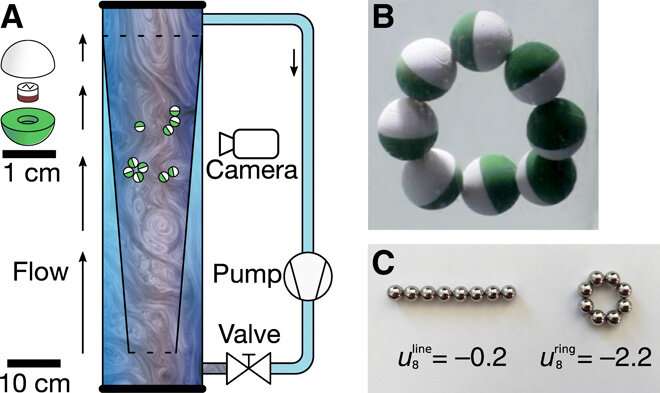In materials science, interactions between dipolar
forces of permanent magnets can lead to form one-dimensional chains
and rings. In a new report on Science Advances, Leon Abelmann and a
research team in electronic components, technology and materials at
the Saarland University, University of Twente and Delft University
of Technology in Germany and Netherlands investigated the
possibility of allowing dipoles to self-assemble into 3-D
structures by encapsulating them in a shell of a specific shape.
The team realized the conditions for such self-assembly in a 3-D
crystal when the dipole energies in parallel and anti-parallel
states were equal. They formed the most regular structures using
cylinders and cuboids, and the simple design rule helped form 3-D
crystals from objects in the micron range, opening the way to
engineer hitherto unknown metamaterials.




